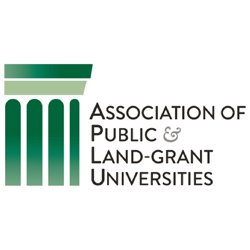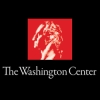ICCE is a unit within the SF State Division of Undergraduate Education and Academic Planning, and our work spans all disciplines at both the undergraduate and graduate levels.
Our Vision
The Institute for Civic and Community Engagement (ICCE) aspires to be a vibrant, collaborative partner in advancing transformative social change in our communities.
Our Mission
ICCE enhances the academic mission of the university by supporting teaching and learning that centers civic and community engagement to develop people to become productive, ethical, and active participants in their communities.
Our Values
ICCE upholds SF State’s core values:
- Empowerment and Transformation
- Equity and Justice
- Inclusion and Belonging
- Learning, Creativity, and Exploration
- Local and Global Engagement
Principles of Practice
The principles of practice are aligned with the CSU’s essential elements of community-engaged learning articulating best practices for ethical and effective engagement. All ICCE programs strive to model and teach these practices.
Through ICCE’s programs, projects, and activities participants will have the opportunity to:
- Develop a responsible civic identity and their capacity for life-long participation in a community.
- Engage in reciprocal relationships with others rooted in empathy, humility, and respect.
- Broaden and deepen their thinking and understanding of complex and interconnected social and environmental issues affecting San Francisco and the world today.
- Utilize critical reflection activities to increase self-awareness and integrate learning.
- Commit to ethical decision-making in their daily lives and respond to social and environmental inequities.
- Examine the ways that difference, privilege, and power work in their own lives and in our society, and learn how to equalize power
- Practice professional skills and gain professional experiences needed to work in various settings.
- Connect scholarly research and academic inquiry to actions that will improve society and benefit the common good.
For Media Inquiries
Thank you for your interest in SFSU and our civic and community efforts. Our University's Strategic Marketing and Communications is here to help reporters and producers. For inquiries, please contact marcomm@sfsu.edu and/or 415-338-1665.
Spotlight on Service
San Francisco State University has been selected for the 2026 Carnegie Elective Classification for Community Engagement from the American Council on Education (ACE) and the Carnegie Foundation for the Advancement of Teaching. This national recognition reflects the university’s long standing commitment to reciprocal, community centered teaching, research, and service. ICCE plays a central role in advancing this work through partnerships that align academic learning with community priorities.
In December 2015, SF State was again named to the U.S. President’s Higher Education Community Service Honor Roll with Distinction. It was the fourth time in the past six years that we were so named. And in 2010 we were selected as one of five universities nationwide to be designated as a Presidential Awardee on the Honor Roll. The award is a recognition of the scope and impact of the university’s engagement with local communities in addressing issues of local concern.
San Francisco State University’s Engaged Learning Zones (ELZ) partnership is the 2013 recipient of the C. Peter Magrath University Community Engagement Award for Exemplary Program for the project “Community Engagement, Urban Resiliency: Developing Empowered Neighborhoods through Service Learning.” San Francisco State University and more than 61 community partners used a community-based approach to revitalize eight neighborhoods in urban San Francisco. After evaluating best practices in community sustainability and resiliency nationwide, the partners agreed to focus on highly diverse, multicultural, and distinctly different neighborhoods where University community service learning (CSL) faculty engaged 358 undergraduate and graduate students in 23 projects.
Collaborating with elected officials and departments in the City and County of San Francisco and neighborhood stakeholders, students dedicated nearly 30,000 hours of service over four years to help stakeholders revitalize their neighborhoods. The University-community collaboration positively impacted nearly 80,000 San Franciscans, generated two Town Hall meetings, two Environmental Summits, numerous policy meetings, six community-leadership workshops, six Community Councils, and Festivals that hosted more than 1,200 community celebrants, tutoring services to 5,653 low-income k-8 students, and senior service.
San Francisco State University's Disaster Preparedness Research program was named a Best Practice by the American Association of State Colleges and Universities (AASCU) Research and Regional Stewardship Spotlight on Innovation in 2011. Disaster Preparedness for Vulnerable Populations (DPVP) is an innovative interdisciplinary pilot program developed and coordinated by ICCE that involves multidisciplinary faculty and students from Asian American Studies, Engineering, Nursing, Psychology, Raza Studies, and Teaching English to Speakers of Other Languages.
Supported by funding from the Bay Area Super Urban Area Security Initiative (SUASI) and launched in September 2007, DPVP is designed to target three of San Francisco's most difficult-to-reach populations: 1) residents living in public housing developments operated by the San Francisco Housing Authority (SFHA); 2) low-income homebound senior citizens and disabled individuals served by the San Francisco In-Home Supportive Services Public Authority (SFIHSSPA), a non-profit organization publicly funded to match home care workers with the needs of this community; and 3) learners of English as a Second Language. Principal Investigator: Gerald Eisman.


SF State's Community Service-Learning (CSL) program was recognized as a national model by The Washington Center for Internships and Academic Seminars (TWC). A Higher Education Civic Engagement Award, which recognizes public service and community engagement, was presented to former SF State's President Robert A. Corrigan on Oct. 3, 2011, in Washington, D.C.
The CSL program partners with government, business, and educational organizations to advance the University’s civic engagement goals. SF State students have conducted public health education campaigns, English language classes for immigrants, and after-school programs designed to interest minority youth and girls in science careers. Community service-learning credits are included on student transcripts, and evaluations of CSL programs are based on the impact students make in the community.
The Higher Education Civic Engagement Awards were created in 2009 to highlight role models for civic engagement in the academic community. Six higher education institutions were selected from 140 nominations this year. Benedict College, Augsburg College, DePaul University, Duke University, and Florida Gulf Coast University joined SF State as the 2011 awardees. Selections were made by an awards committee that included representatives of the Carnegie Corporation’s US Democracy Program, the Carnegie Endowment for the Advancement of Teaching, the Center for Information & Research on Civic Learning Engagement, and the Case Foundation.
